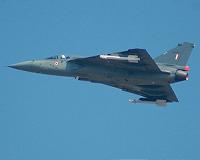| . |  |
. |
Rio De Janeiro (UPI) Jan 19, 2011 Brazil's decision to postpone an early deal for a multibillion-dollar purchase of fighter jets for its air force reopens the Latin American country's market to competitors who were up against France's Rafale as the leading favorite. Boeing and Sweden's Saab campaigned vigorously for their versions of advanced fighter jets joining Brazil's defense refurbishment program but early reports suggested a sales trip by French President Nicolas Sarkozy swayed Brazilian government and military opinion. Sarkozy's claims of a deal in the pipeline were contested by Brazilian government officials. Former President Luiz Inacio Lula da Silva, who initiated the fighter jet purchase program, backtracked on comments that appeared to favor the French -- mainly on the basis of their willingness to offer a large component of technology transfers as part of a deal. President Dilma Rousseff, who assumed office Jan. 1, remained silent on the issue for the better part of her first two weeks in office. Now her aides say the president has pushed the purchase aside and ordered a further examination of various options for Brazil. Brazilian military strategists have interpreted the deal as a step toward developing the country's defense manufacturing capacity. Of the three potential suppliers, France offered the most expansive technology transfer deal but Brazilian aides say that isn't enough. There are deeper concerns about the financing of the purchase and how much to borrow for an initial purchase of an initial 36 jets -- to be followed up with additions to the inventory. Lula told reporters just before he left office that it didn't make sense for Brazil to be saddled with a debt that could take years to be repaid. He told interviewers on the government-run TV Brasil channel he "could do a deal with France, but I'm not going to." Although there are still no clear favorites Rousseff has hinted at a shift in Brazil's foreign policy that may include a more proactive and warmer approach to the United States, analysts said. Arrayed against Dassault's Rafale fighter jets are the Boeing Co.'s F-18 jets and Saab's Gripen NG fighter aircraft. Military aides to the government are wary of entering a deal where Brazil's foreign policy, which favors ties with Iran and support to a Palestinian state in pre-1967 territories, lead to problems in the lines of supplies. Critics of previous military deals with U.S. suppliers frequently cite problems experienced by Brazil and other Latin American states after defense deals that went sour over political and diplomatic disputes. Brazil is developing a range of defense manufacturing capabilities and is already a serious competitor for U.S. and European manufacturers in executive jet, small passenger and transport aircraft markets. Last week Rousseff queried U.S. senators visiting Brazil on issues of technology transfer that could improve Boeing's offer. Government sources interpreted the meeting as a prompt to U.S. manufacturers to try harder to satisfy Brazilian expectations on technology transfers. The deal is likely to be worth $4 billion-$10 billion in the start-up stage. Once a supplier is in place, more orders are likely to increase the value of a total rolling contract. The Boeing Co. says its F/A-18 Super Hornet is a combat-proven strike fighter with built-in versatility. It offers a suite of integrated and networked systems with enhanced interoperability. Rafale has yet to sell outside France. Saab's Gripen NG is an improvement on its JAS 39 Gripen and uses General Electric's F414G engine, itself a development of the engine deployed in Boeing's F/A-18E/F Super Hornet.
Share This Article With Planet Earth
Related Links The Military Industrial Complex at SpaceWar.com Learn about the Superpowers of the 21st Century at SpaceWar.com
 Turbulence ahead for Indian fighter jet: analysts
Turbulence ahead for Indian fighter jet: analystsNew Delhi (AFP) Jan 20, 2011 India's homegrown fighter jet, the Tejas, has finally been cleared for operations but analysts say any celebration of India's entry into an elite club of military hardware producers is premature. Initial operational approval for the Tejas Light Combat Aircraft (LCA) has taken 26 years - the result of endless developmental delays, technological hiccups and massive cost overruns. First co ... read more |
|
| The content herein, unless otherwise known to be public domain, are Copyright 1995-2010 - SpaceDaily. AFP and UPI Wire Stories are copyright Agence France-Presse and United Press International. ESA Portal Reports are copyright European Space Agency. All NASA sourced material is public domain. Additional copyrights may apply in whole or part to other bona fide parties. Advertising does not imply endorsement,agreement or approval of any opinions, statements or information provided by SpaceDaily on any Web page published or hosted by SpaceDaily. Privacy Statement |